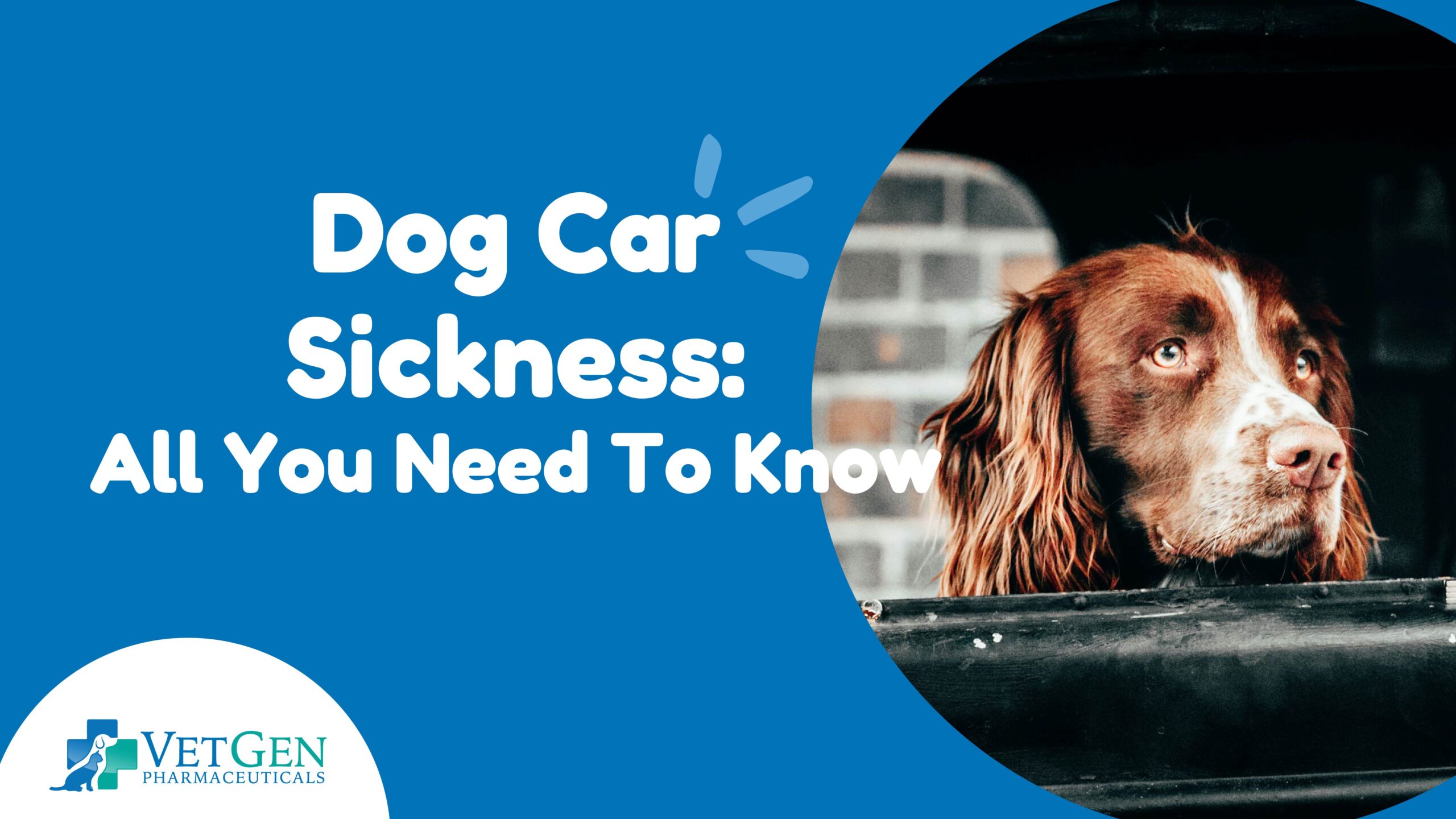For dog owners, dog car sickness can be a stressful challenge that takes away the pleasure of a simple car ride. Puppies and young dogs suffer from it most often, emerging from symptoms like drooling, vomiting, and restlessness, and typically arises from motion-induced balance and anxiety issues. If you and your dog experience this too, read on as we explore this issue in detail, and share expert advice to deal with it.
Causes of Car Sickness in Dogs
Just as humans, dogs too can experience sickness when a vehicle is in motion. This happens because of a disbalance in the inner ear caused by the constant movement, which results in nausea. Since the inner ear structure is in developmental stages in puppies, they are prone to experiencing this more commonly. However, the issue can resolve as they age in most cases.
In addition to this, anxiety plays a key role in the onset of dog car sickness. If dogs associate car rides with bad experiences, they can get stressed and anxious, leading to them feeling sick. As such, it is vital to manage anxiety through positive experiences to prevent car sickness.
Symptoms of Car Sickness in Dogs
Some key physical symptoms that are easy to identify include excessive drooling, vomiting, diarrhea, and licking lips. These are usually signs of nausea. Other symptoms include behavioral signs like whining, restlessness, and excessive panting. If the dog appears anxious, has wide eyes, and tense posture, it is also a sign of getting car sick.
Treatment Options for Dog Car Sickness
There is a wide range of treatment options to help manage car sickness in dogs including the following:
- Herbal supplements like ginger, valerian root, etc, which gently help treat car sickness in dogs due to their anti-nausea properties and impact in reducing anxiety, respectively. However, it is essential to give these in small quantities.
- Aromatherapy and essential oils like lavender and chamomile also help reduce stress and anxiety. Make sure you use them safely by diluting them and using them in a well-ventilated space. The soothing fragrance can help calm the dog down.
- OTC medications like dramamine can help reduce nausea and help stabilize the inner ear balance in the dog, making car rides simpler for them. Make sure you stick to proper dosage amounts and instructions. It is also essential to note that such medications can cause drowsiness, dry mouth, or urinary retention as well.
- Prescription medications are only advisable for dogs that have severe car sickness. Medicines like Cerenia block brain signals that trigger vomiting, thereby providing relief to the dog. Following proper dosage as recommended by the vet is essential for safety and effectiveness.
In-Car Techniques for Dog Car Sickness
To prevent the dog from getting sick in the car, some in-car techniques can be tried as well. Start by opening the windows to keep the car well-ventilated and avoid overheating which leads to discomfort and nausea. In case of extreme heat, turn on the ac to avoid discomfort.
During the ride, take regular breaks. Stopping every one hour or so helps the dog get a break, stretch, get fresh air, and relieve any discomfort, thereby alleviating the feeling of sickness or anxiety.
Throughout the ride, try to divert the dog’s mind with their toys and interactive games that they enjoy. By engaging their minds, focus from sickness or anxiety can be prevented, making the ride smoother. Lastly, playing music that calms the dog, helps create a suitable environment and establish a sense of calmness.
Post-Trip Care for Dogs
Making car rides overall enjoyable for dogs requires some post-trip care as well. For starters, promptly clean any messes, which helps remove any lingering odors that could later cause distress. Choose pet-friendly cleaning products that are free from chemicals.
For the dog, provide them with fresh water to help rehydrate and only offer a light meal after some time to prevent an upsetting stomach. Choose a meal which can be digested easily. At the same time, keep monitoring the dog for any ongoing symptoms. However, complete recovery can take some time, so do not panic.
If the dog’s symptoms do not subside in a few hours, or seems to remain in distress, consult a vet. This is essential because ongoing symptoms could indicate more serious problems that need to be addressed by a professional.
Special Considerations
The treatment can vary based on the age of the dog. Since puppies are more susceptible to car sickness, treatment typically focuses on gradual acclimatization to car rides through natural solutions for lowering stress. Medications should only be used in extreme cases.
Similarly, certain breeds like bulldogs and pugs are more prone to sickness due to their shorter noses which causes issues with breathing during travel. Breeds like Terriers, and others that can get easily anxious also require special care. To make such breeds comfortable, start with short journeys before trying longer rides, and keep essentials like food, water, and medicines ready.
Conclusion
To manage car dog sickness, identifying causes and symptoms, and implementing preventive care and treatment strategies is essential. A combination of natural remedies, medications, and behavioral modifications can help address physical and emotional challenges that dogs face. Through the comprehensive measures discussed above, it is possible to easily manage your dog’s condition. Visit VetGen Pharmaceuticals for more tips and advice on canine health
Frequently Asked Questions
How can I help my dog overcome anxiety associated with car rides?
Helping your dog get used to car rides gradually can take away their fear and anxiety. Foster a calming environment and create positive associations with the car rides. Gradually increase journey times to make them more comfortable.
Is there anything I should avoid feeding my dog before car rides?
Light meals before starting the car rides are the best option to avoid car sickness. Heavy or large meals can contribute to the feeling of nausea and lead to vomiting. Make sure there is enough fresh water, but do not overhydrate.
Are there any risks associated with frequent car sickness?
Some risks associated with frequent car sickness are weight loss, dehydration, and heightened stress and anxiety. It can also lead to behavioral changes and reluctance to travel. To avoid such issues, professional guidance is critical.
How can I ensure my dog stays safe during car rides?
Try special seat belts designed for dogs, pet car seats, or security crates to ensure your dog is safe. Do not leave the dog unrestrained as unforeseen incidents can be fatal. Additionally, make sure you never leave them unattended in a car.






